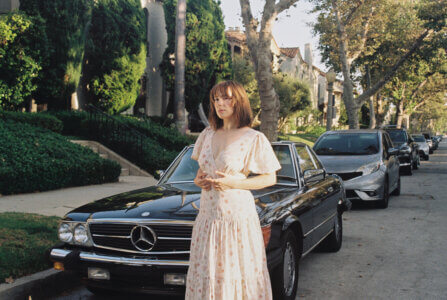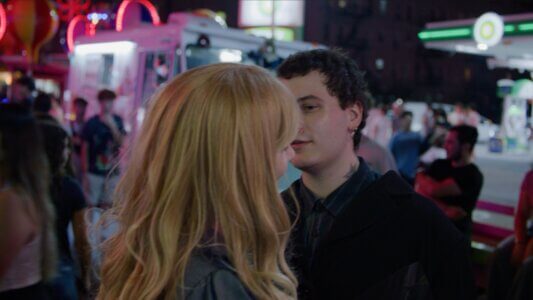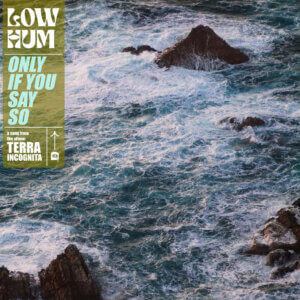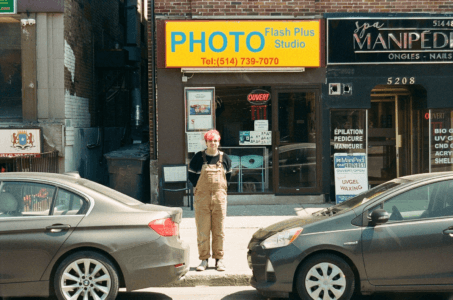Our interview with Seoul
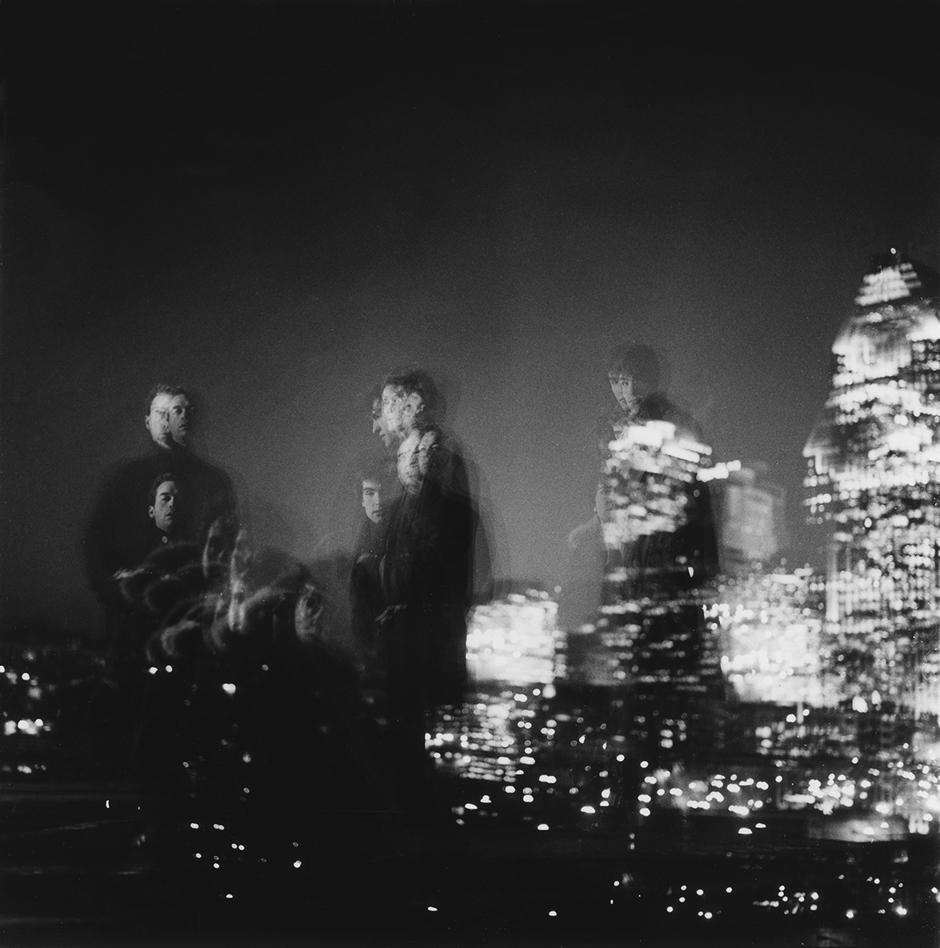
The trio that makes up Seoul have garnered attention for their gauzy, dream-pop sound, and for how long it has taken them to release their full LP. Five singles were posted previously to the debut of I Become a Shade, some dating as far back as 2013. Connecting over Skype, I talked with the incredibly articulate Julian Flavin and Nigel Ward, with Dexter Garcia being appropriately late to the party, eventually joining us from a family reunion. We found out who they’re listening to now, talked about the difficulties of working from home studios and the importance of erasable markers.
Northern Transmissions: What inspired the name “Seoul?”
Julian Flavin: We were just trying to come up with a new name for our band. we’d been writing the songs in a period where we weren’t playing live too much and we wanted to have a new name that set the record we were writing apart and started a new project for us. We spent quite a while writing ideas for names. Its a notoriously hard process, or its kind of comes in a moment of I guess epiphany. For us it was kind of long. we were just trying to respond to the type of music we had written and we were kind of in a unique position because we had already written the music before coming up with the name for it. So a lot of the music was kind of urban centric, it dealt with themes that had to do with city existence and stuff. One of the first things that I checked off the list was referring to a city. We’ve never actually visited South Korea or we’re also not from there so some people wonder if that’s part of it, which its actually not. We liked how it referred to that sort of urban space so you immediately have that evoked for you but then it also has an english word, the way it sounds, its sort of heard as so many other things that kind of flavor how it’s received. Hearing it as your soul, as in your spirit, which is most commonly what it’s heard as and you sometimes have to spell it out for people so they’re like ‘OH not that kind of soul.’ We liked how that gave it this sort of human and personal, spiritual element, placing a person within that urban space. It’s also flavored with a bit of loneliness, too, because you can hear it as soul as in the only person, the soul person somewhere. It was kind of an abstract mish-mash of feelings that felt like they sat well together.
Nigel Ward: Its something that we often have to explain so we sort of perfected the spiel at this point, but I would maybe add just to consolidate those thoughts that it provided an interesting phonetic coincidence that allowed us to address many of the themes that we were exploring in our music. It felt appropriate as a name and kinda cool and thought provoking so we went with it.
NT: What’re you hoping to achieve with this debut album?
NW: In a lot of ways it sort of feels like a milestone, we released 5 singles, so we released a lot of the album prior to the album but it still felt a lot like people weren’t accepting our legitimacy as a band until we release an album, which is kind of ironic because I feel like, y’know, albums still mean a lot to us, but I feel like in this day and age albums potentially get overlooked in favor of singles and remixes and music videos and what not. Its kind of ironic that people don’t want to take you seriously until you’ve released your album, yet they maybe don’t pay attention to albums that much. However, we really did pay attention to the album as an art form when we were creating it in a sense that we really wanted it to be a cohesive piece that could be listened to and appreciated from start to finish.
NT: When it comes to your sound, what influences your creative output the most?
JF: We definitely listen to a ton of music and I think it’s always, especially these days, an assembly of what you listen to because we’re collaging media more than ever, too, with the kind of information and media on the internet. I feel like we’ve always listened to, since we were kids, more melodic, and slightly more complex harmonically, music. Smoother music. We were really into Steely Dan as kids and I feel like that is kind of a base for us in a weird way. When we went to university I think we started getting into electronic music of all sorts, in a big way because people start going to clubs at that age a lot and so that sort of infiltrates into your repertoire a bit. In 2008/09 it was a certain type of electronic music but I think it’s kind of just a thing that you graduate to with going to university, no matter who you are. We listened to a lot of ambient music too in the course of making this record. A thing that was part of a lot of my friend’s experience too, just being on a computer a lot, being at school having to do work on a computer and having types of music that, as dark and dystopian as it sounds, kind of light up that weird cold computer space with music that keeps you kind of feeling good. I think that was a big influence too, instrumental music in general, but pretty omnivorous I would say enroute to what we came up with.
NT: What ambient and instrumental bands to you tend to listen to now?
JF: We’re big into Stars of the Lid. A guy who played with us for our album release in Montreal called Kyle Bobby Dunn, he’s really good. Dirty Beaches who lived in Vancouver I’m pretty sure for a little while. Who else, Eno of course.
NW: I guess kind of an offshoot of Stars of the Lid, but A Winged Victory for the Sullen. I’m not sure if we’d discovered them at that point but definitely an influence.
NT: You guys have been friends since Kindergarten, when did the music start
happening?
JF: I’d say 12 years old. Nigel and I saw a performance of “Smells Like Teen Spirit” in grade eight or grade seven and it was just really, for whatever reason, very meaningful to us at that moment and in an inspired move we decided to buy a drum-set and guitar and basically try to replicate exactly what they did and I guess succeeded but hard to say what really the kind of end point of all that was.
NW: Yea it took off in another direction really quickly.
NT: You guys engineer and mix all of your songs yourself on top of songwriting and playing, what’s the most difficult part of production then?
NW: Well I think on this album, what made it kind of difficult to complete was the fact that we would mix it or we would “finish it” and then we would acquire more skills in the world of engineering and production then all of a sudden we would listen back and it would become apparent that we hadn’t taken advantage of certain techniques so we would do it again. And thats a vicious cycle because there really is no end. You can always do something in a different way, there’s always some better piece of equipment or some plugin that does something a little better. That kind of stuff never ends so I think one difficult part of it was we were learning a lot as we did it so that was something that we battled with. We let go of it at the very last minute, it took external intervention. Thats one difficult thing, I mean also you’re never in a perfect environment when you’re doing home recordings, which is a virtue and a vice. We’re always mixing in a different apartment and I just moved again today so I’m going to have another mix room in my new apartment and it’s going to sound slightly different from the old one. Thats what mastering is for, in a way, in the DIY world, but learning how to adapt to and embrace not acoustically perfect environments is sometimes difficult but its fun. I feel like generally things are looking up. I think we’ve learned a lot, our skills as producers and engineers have come a long way and we’re excited to dive into it again for a second record because we’ll take off where we left but we wont have to fall down so many times in the process, or maybe we will, yea, we’ll see.
NT: Was it an issue of control that made you decide to be the engineers of your own sound and not have another pair of hands tinkering with things?
JF: I feel like it’s not as much a control thing as I feel like the way that our music has come to be has been in the writing process being very studio oriented, or was for this record, and is very much written with the three of us hunched in front of a computer most of the time and not as much written in a live setting, maybe in rehearsal and brought back. I think “Real June” is the only one that was written at a rehearsal. I feel like thats sort of part of the process for us and obviously that takes time so it makes the most sense to be working on that at our own pace and also just with the ability to use the studio tools to kind of make it part of the sound of the record. Sometimes you’ll be recording piano and you’ll be like, ‘oh this sucks… I’m so shit at piano.’ But add a delay and take a bunch of the low frequencies out and then all of a sudden you’re like, ‘oh my god this is perfect.’ It just lets you be more sculptural with it I think, which is something that we really enjoyed doing. Instead of brute force writing it down and then handing it off to the printers.
NT: You talk a lot about collaboration. Where does it become the most difficult to compromise within production?
NW: There is a certain respect for the original person who came up with the idea, I think a lot of the fundamental elements of songs are taken at face value. Its not to say we don’t experiment and change things sometimes, its generally pretty smooth I would say. We’ve sort of just developed doing it this way so we’ve learned to respect each other’s opinions and hear each other out. There are good days and bad days and sometimes you don’t feel like you’ve been productive. Or sometimes you feel like working alone you might feel like you have a more constant work flow, but at the end having two other people questioning things and bringing their own ideas to the table as it goes is probably beneficial just in terms of the end product and it being as good as it can be. I mean you could argue that there’s advantages to both.
JF: There’s a big aspect of writing a full record, too, where you need to get perspective on what’s happening, but sometimes, what’s funny about it is three people can lose perspective at once if they’re all working in the same room together. It’s not like you can really give each other perspective all the time. The way we were doing it that I think is kind of effective was we had this whiteboard. We actually went to staples, bought a whiteboard, it was a huge moment I remember. There we were with this big whiteboard and markers and we basically started writing down the project files on our computer that we thought had potential and that we liked. We started jostling them around in lists and stuff. We’d say, ‘ok these are little ideas,’ it could be a 20 second idea or it could be a pretty much fully written pop song. Then we’d say, ‘lets check out this one today, or ‘let’s move on to that other one.’ If we get kind of stuck and we’re arguing and we’re losing perspective its usually good to just switch songs, which is nice to work in that album mode cause instead of it being like, ‘ok this song has to be done tomorrow’ its like, ‘lets just flip to another thing and maybe the progress we make in another song will influence our ideas about the one we were stuck on.’ I feel like thats kind of a nice way to approach it for that sort of stuff.
NT: Is the whiteboard still around?
JF: I don’t know where it went…
NW: It got thrown out because we used… i don’t know, we were using the wrong kind of marker so it couldn’t get erased anymore.
Dexter Garcia: I think we were using a Sharpie. Sorry I’m late to the party here. I’m at a whole big family reunion happening right now.
NT: Wow! Put everyone on! What do they think about your music?
DG: Yea the album has actually been on constant rotation from everyone’s iPhones. In the car, on the way to the restaurant, at home on the ihome. Its pretty much torture, but they mean well, of course.
NT: I’ve read on a couple of sites that the album is separated into suites, tell me a bit about how that happened.
DG: We realized it was happening as we were putting the songs together, which would go where. I remember it didn’t really take that long everyone was kind of in agreement as to how it would flow and it was nice to see that there were these three specific pockets of songs. You have from “I Become a Shade” through “Real June” being this first introductory third, and then “Fields” sort of transitioning that into the next third of songs. “Fields” and “White Morning” and “Stay With Us” and “Thought You Were” being the transitional piece into the final collection, like the final suite of songs being “I Negate”, “Carrying Food” and “Silencer” and “Galway”. So I think it kind of just emerged as we were putting the songs together and just fit perfectly or just felt right.
NW: yea, I think it might have been slightly Microcastle influenced, also, which is a Deerhunter album that employs sort of similar techniques. I guess it’s sort of a concept album, not that our album is necessarily a concept album. I think it was attractive to us because it was ambitious. We just wanted it to be a flowing piece.
DG: It also feels like it’s in these three chunks of like “Fields” and “Thought You Were” separating the three chunks. So I guess at the end it felt like, ‘oh there’s three little obvious spots here.’ It was sort of just serendipitous.
NT: You’ve been described as mysterious! Any theories on why?
NW: I feel like it usually comes about because of our lack of like, hammer-over-the-head self documentation I guess. Especially photographically speaking, we don’t tend to do like a ton of photos of ourselves. When we were first putting out the music, like the first piece of visual media that accompanied the music was for “Stay With Us”. It obviously doesn’t feature us and I feel like that had an influence on everything we did after because it felt so appropriate to have other people telling our story or just other sorts of images that aren’t us that are able to expand the world that we’re creating with the music. Obviously people often connect music with the artist who’s creating it and it can create a link that helps them feel it more deeply or think, ‘oh this is kind of where they’re coming from because I look at them and can sort of tell what kind of person they are,’ which is cool but I think we’re trying to pair our music with other sorts of images that set the mind to a different sort of dreaming. I feel like it really didn’t seem like the number one option when you put out a song to put a picture of your face on the album. The other thing, in terms of being mysterious, there’s not an explicit attempt to be mysterious. We have to get on stage when we play and there’s no effort really to conceal ourselves or wear robot masks on our head. We’re still there, we’re still normal people who aren’t trying to enact any kind of persona, at least with this project it hasn’t been that way. It seems kind of like marketing-y and maybe a bit of a super calculated thing, but really it has just been a preference for something else.
NT: And you guys work pretty closely with your art team as I understand?
NW: Often its us either coming up with an idea with them, usually other people taking photos but then we assemble it and everything, like graphically align it, and yea we’ve had some really talented people who have worked with us along the way.
NT: Whats in the works?
DG: Hopefully some new songs, I guess. I mean, the summer is pretty wide open in terms of our schedules. I think we’ve been tour for the last two years with these songs and this record and trying to play as many cities as possible, so this is kind of two months of wide open space to do whatever. Maybe it’s an EP or a full LP or whatever, kind of just excited to get back into just experimenting, messing around and getting cool sounds stage again.
NT: Thanks everyone! I’ll let you guys go, and let you get back to your reunion Dex!
DG: Yea I’ve got a massive waterside seafood dinner awaiting with like 13 family members, one of those things. And our album playing off of like three iphones at once, “This is my grandson!”
Latest Reviews
Tracks
Advertisement
Looking for something new to listen to?
Sign up to our all-new newsletter for top-notch reviews, news, videos and playlists.






